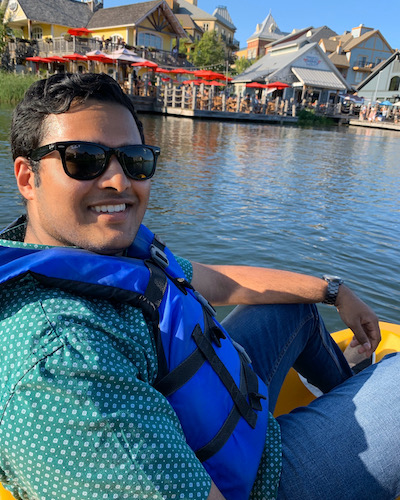HBA Sustainability Certificate
Empowering the next generation of sustainable leaders
Hello! I’m Shafeeq, a current HBA1 student. My goal is to foster positive change in everything I do through continuous improvement and data-driven decision-making. I strive to consider a wholistic perspective to drive positive change, whether that’s in my personal life, extracurricular activities, or the workplace. I’m currently involved in a variety of activities with the University Students’ Council (USC) and local organizations working to make an impact by improving campus clubs and activities. Outside of school, I enjoy music, playing my trumpet, and baking.
What is your personal definition of sustainability?
Society develops when our needs are met with solutions, but this progress must not compromise the ability of future generations to also meet their needs. I define sustainability to be the balance of environmental, social and economic needs. It is important to consider the interconnections between these facets as they can transcend decades based on our choices today. We have the responsibility to encourage discussion and promote action to integrate sustainability into our everyday actions – think globally, act locally. Change starts with each individual, whether that be through our purchasing behavior or managing our own carbon footprint.
What role do you see sustainability playing in your professional career?
Sustainability must not be an afterthought, but rather incorporated into corporate strategies. As someone who wants to work for a CPG, sustainability is a core mission for many of these companies. As an analyst, applying a sustainability lens to my work will allow me to achieve these goals as I consider the greater implications of the environment and social impact, in addition to profit. My passion for analytics will drive me to find opportunities to position brands and products with sustainability as a focal point. As people increasingly demand eco-friendly products, proving the business case for increased investments in sustainability measures will fuel the shift towards continuous improvement. While small changes may seem insignificant on a local level, these improvements are necessary to encourage greater movements. When considering the global scale of CPGs, firms start to appear to serve a greater good than purely economic. To achieve this, it starts with individuals who are committed to doing good on a wholistic level. Developing my critical thinking skills and broad perspective through the Sustainability Certificate program will position me to be a positive force within the CPG industry.
What sustainability projects have you been engaged in?
A passion for sustainability must be met with the ability to drive continuous change through stakeholder management. My work with the USC and my summer role with Tribunals Ontario demonstrates this core quality.
As the Grants Coordinator for the USC, I have brought forward measures to ensure we think beyond our economic impact and consider a wholistic picture. By establishing priorities and quantifying our results, we hold ourselves accountable to stakeholders. For example, a goal this year is to ensure clubs support students through diversity, inclusion, and community building activities. By measuring our progress towards achieving these goals, I help support continuous development.
As a Business Analyst with Tribunals Ontario, I helped foster a data-driven decision-making mindset where insights from data helped inform strategy. As we transform our operations from paper-based systems to electronic databases, data analysis is a way to uncover previously unknown information and act on it to deliver enhanced services. My ability to convert ambiguous data into meaningful information and communicate complex concepts in a simple manner enables me to support a culture of continuous improvement.
By developing my foundational skills, I am well positioned to uncover opportunities for improvement through a sustainability lens within CPG firms.
Shafeeq Baksh
